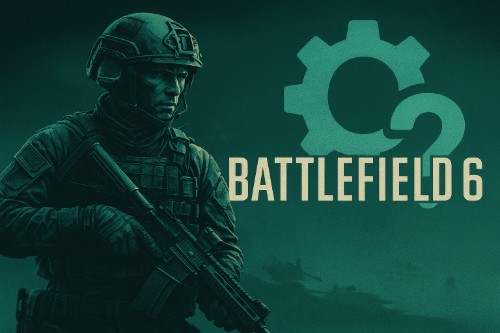What we do know so far
One of the more exciting reveals is that Battlefield 6 includes an updated version of Portal , a creative toolset / map-editor that allows players to build custom experiences. The editor is built on a version of the Godot engine (or heavily inspired by it) and gives modders the ability to add objects to maps, script behaviors, and even build custom UI elements. So this isn’t your standard “mod loader + asset injector” system, it’s more structured, more official.
Through Portal in Battlefield 6, people have already toyed with totally different game styles inside it, top-down shooters, puzzles, platformers, etc. The idea is that Portal becomes a creative space within Battlefield where the community can reshape, remix, or even create new sub-experiences inside the game world.
EA has also confirmed that post-launch support will include the expansion of “Community Experiences”, i.e. content made by or with the community through the Portal tools. So the intention is clearly to have user-driven content.
But, there can be constraints when it comes to mods for battlefield 6
It’s not unrestricted modding. Here’s where the reality gets a bit murky:
- Sandbox versus full modding
The version of modding we’re getting is more “mod within the rules” than “anything goes.” Because it’s built into the framework of the game, there will likely be limits on what kinds of assets, scripts, or modifications you can drop in. You likely won’t be able to replace core engine systems, override essential netcode, or deeply inject your own engine modules. The Portal system governs the boundaries. - Anti-cheat & security constraints
Battlefield 6 will use EA’s kernel-level anti-cheat system (called Javelin), which requires Secure Boot to be enabled on PCs. That means the system environment is locked down in many ways to prevent cheats. Any modding support must coexist with these security measures. This may limit how much freedom you have in inserting custom code or altering memory at runtime. The mod system must be sandboxed, vetted, or verified to avoid undermining anti-cheat integrity. - Platform and crossplay limitations
Because of how anti-cheat and security are implemented, mod support may differ between PC and consoles. On consoles, your only route for “modding” is whatever the devs allow through official channels, since you can’t generally load arbitrary user content outside what the platform permits. The Portal system is likely the same across platforms but with platform-specific restrictions. - Performance, consistency, and stability
When you allow custom content, you open the door to performance issues, bugs, exploits, and mismatched balance. To keep the core game stable and fair (especially in multiplayer), EA/DICE will probably put many limitations or review processes on what kinds of community content get shared publicly. It also means some of your creations may only be playable in certain server types or environments (like “Community Servers”) rather than in official matchmaking. - Asset & licensing issues
For modding systems to allow custom content, there are always legal and licensing hurdles, third-party assets, music, voices, etc. The devs need to ensure the content users add doesn’t violate copyright. They may restrict what asset formats or sources are allowed, or provide an approved “asset library” you can mix and match.
How mod support in Battlefield 6 might practically look
Putting it all together, here’s what I expect the modding / user content ecosystem in Battlefield 6 to feel like,
- You’ll use the Portal editor to build new maps, game modes, or themed “mini-games.”
- You’ll be able to script certain behaviors, maybe set custom rules (e.g. health, damage, team dynamics) within limits.
- Custom UI elements or custom HUD changes might be possible in some controlled fashion.
- Custom content you build might be playable only in dedicated “Community Experiences” or community servers rather than in main public matchmaking.
- There’ll be a submission or vetting process, or sharing hub, where the community’s best creations get spotlighted, with moderation to weed out malicious or broken modules.
- Because of anti-cheat and platform constraints, you won’t get full freeform modding (e.g. loading arbitrary DLLs or rewriting engine code).
So while it’s not the “mod everything” freedom that some PC games offer, it’s still much more open and creative than the old “no mods allowed” model.
Conclusion
So yes, Battlefield 6 will support mods, in a way. But the support isn’t absolute or unlimited. The Portal system is the bridge: it gives players tools to create custom content inside a controlled, secure environment. It’s more of a curated modding / creation system than a fully open mod framework.
If you’re someone who dreams of making totally wild, ground-up overhaul mods, you might find the constraints frustrating. But if you’re into making custom maps, new modes, tweaks, and creative spins on gameplay, there’s real potential. I’m personally excited to see how far the community pushes it.
